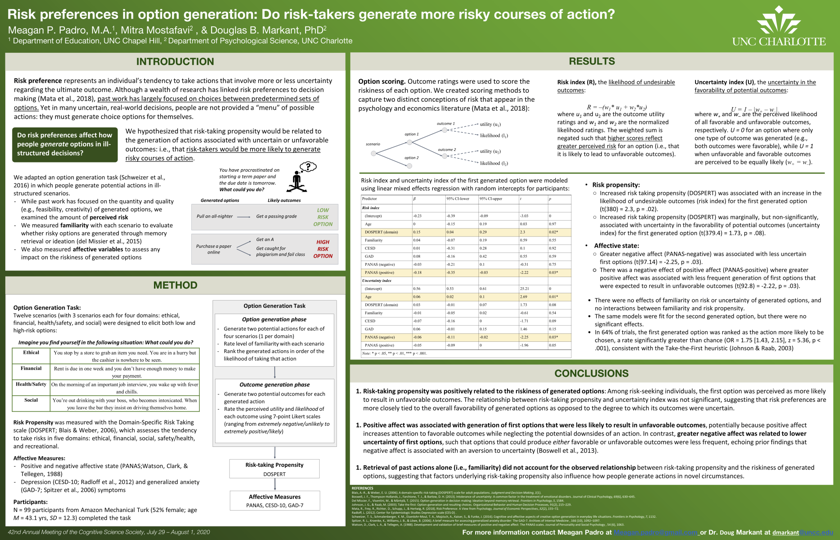CogSci 2020 [poster] - Risk preferences and option generation
22 Jul 2020It’s well-known in the behavioral sciences that people differ in their attitude toward taking risks. Some individuals are risk-seekers who like to roll the dice, while others are risk-averse because they prefer to play it safe.
Past studies of risk attitudes have typically focused on well-defined choices in which the set of possible actions are predetermined by the researcher and the possible outcomes of each action are known. For example, a person might face a choice between:
- Option A (safe): earning $5
- Option B (risky): earning a lottery ticket with a 5% chance of winning $100
An individual’s risk preference is thought to influence whether they will go with the safe or risky option in this kind of well-defined decision.
But many real-world choices are ill-defined, in that a set of choice options is never explicitly provided to you. Instead, you have to generate possible courses of action for yourself. Do risk preferences affect how people generate actions in ill-defined, uncertain situations, just as they affect choices between predetermined options?
This is the question behind an ongoing project in the lab (with Meagan Padro and Mitra Mostafavi) and the topic of a poster that will be presented at CogSci 2020. To learn more, click on the image below to get the PDF of the poster. If you attend CogSci swing by the (virtual) poster session on August 1, 11:00-12:40 EDT!

